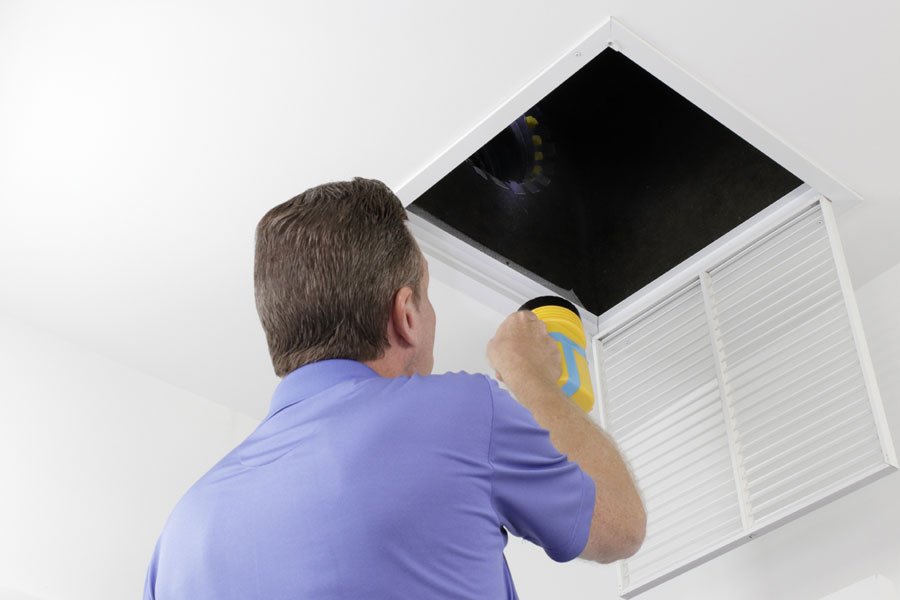Ducts are a vital part of your HVAC system. They distribute the air from your furnace or AC to different parts of your house.
However, when air is lost through gaps in the ductwork, your HVAC has to work harder to achieve the desired temperature in the house. Even if you have a super energy-efficient AC or heating unit, leaky ductwork will mean you won’t see the savings in your utility bills.
Here are a few signs to watch out for:
Rooms are hard to heat or cool
When there are leaks in your ducts, the heated or cooled air is lost through the gaps in the ducts. This causes the HVAC to work harder, and take longer, to get your room to the desired temperature.
It is unusually dusty in the house
When there is a hole in the ductwork, the air from the the surrounding area (attic, garage, or the outside) can get sucked into the ducts. Then this air gets pushed into the house. You don’t want this because air from garages and attics is generally much less clean than the air in the house.
If you notice that you are vacuuming more often and the house still stays dusty, then you may want to check for leaky ductwork.
Your utility bills are higher than they should be
When you have leaky ductwork, conditioned air that was meant for the house escapes, so your HVAC has to work harder to keep the home at a comfortable temperature. Overworking your HVAC wastes both energy and money.
You notice a weird smell
A leaky duct will draw air from the surrounding areas. If this air is from a place like an attic or garage, then the contaminated air gets pushed into your house. For example, if you have a leaky duct in your garage, you might notice the smell of auto exhaust. If you notice strange smells, have your ductwork checked.
Animal sounds from the ductwork
When there is a leak in the duct, small animals that could gather near the leak for some comfortable air. Over time, as the holes in the duct get bigger, animals can get into the ductwork. You might hear animals scampering in the ducts, or their droppings in the ductwork could create a weird smell in the house.
If you suspect a ductwork problem, we advise you to contact an HVAC professional. We at RC Mechanical can do a home analysis to find issues with your HVAC system. Call us today at (650) 575-3915 with any questions.

